How the profession is marking World Sight Day
From campaign launches, to new survey data and a bedtime story in braille: OT looked at just some of the activity marking World Sight Day

This World Sight Day the International Agency for the Prevention of Blindness (IAPB) is encouraging people to prioritise their eye health through the theme of #LoveYourEyes.
The IAPB, which leads the awareness day, has recorded over five million sight test pledges from individuals and organisations. The IAPB had asked the public to pledge to have their sight tested, and practices to count the eye exams or screenings carried out in the month leading up to the awareness day.
The organisation is also calling on world leaders to ensure eye care is accessible, available and affordable to everyone. Special vision screening events are being held in parliaments around the world to mark the event.
Read more about the IAPB’s work in OT’s recent interview.
Peter Holland, CEO of IAPB, said: “I’d like to thank the entire sight sector for once again uniting behind World Sight Day. It’s incredible to see people from around the world getting involved.”
Holland continued: “World Sight Day is always an important opportunity to raise awareness for eye health on a global scale. It serves as a reminder to take care of our own eyes and helps inform the world that there are still over a billion people on this planet who cannot get the eye care they need.”
President of IAPB, Caroline Casey, commented: “The work that eye health professionals do worldwide is building the awareness needed around the vital issue of sight and eye care, including uncorrected refractive error, cataract, glaucoma and diabetic retinopathy.”
“We’ve been blown away by the number of people who have got involved this year,” Casey added.
But how is the wider optical sector recognising World Sight Day? From charities to practices, OT has rounded up a variety of the ways the profession is raising awareness of eye health.
1 Specsavers launches its State of the UK’s Eye Health report
Specsavers launched its State of the UK’s Eye Health report in a digital event on Wednesday (12 October.) The launch, hosted by Dr Michael Mosely, centred on glaucoma, including the dangers of failing to see patients in a timely manner, and also highlighted successful examples of integrated care. Specsavers’ clinical services director, Giles Edmonds, noted the fragmentation of glaucoma care services and emphasised that nationally agreed pathways are needed in order to save sight, while Doug Perkins, founder of the multiple, reminded the audience that “preventing vision loss must be a priority for us all.”
OT has covered the glaucoma ‘time bomb’ and the increase in registrations with sight loss charities, both of which were concerns outlined in the report. The full report is available online.
2 Optometry Ireland calls for improved access to eye-care
Optometry Ireland has called for improved access to eye care for all Irish citizens. The organisation represents 700 Irish optometrists, and has called for care to become “accessible, available and affordable for everyone – everywhere across the country.” Optometry Ireland’s president, John Weldon, has called on the Health and Safety Executive and the Department of Health to properly fund eye examinations, end the ‘piecemeal approach in different areas of the country,’ and follow up on previously made pledges to develop a new model that will utilise the education, skills and training of community optometrists in Ireland.
Weldon also provided a reminder that the United Nations’ Resolution of Vision, made in 2021, ties eye health to the organisation’s Sustainable Development Goals due to its direct impact on education, employment, quality of life and poverty.
“Vision loss can slowly steal an individual’s sight, and often goes undetected until it is too late,” Weldon said. “It is important that people prioritise their eye health, amongst other important health interventions, so problems can be diagnosed, treated and often cured.”
3 Sightsavers launches Eye Health Equals
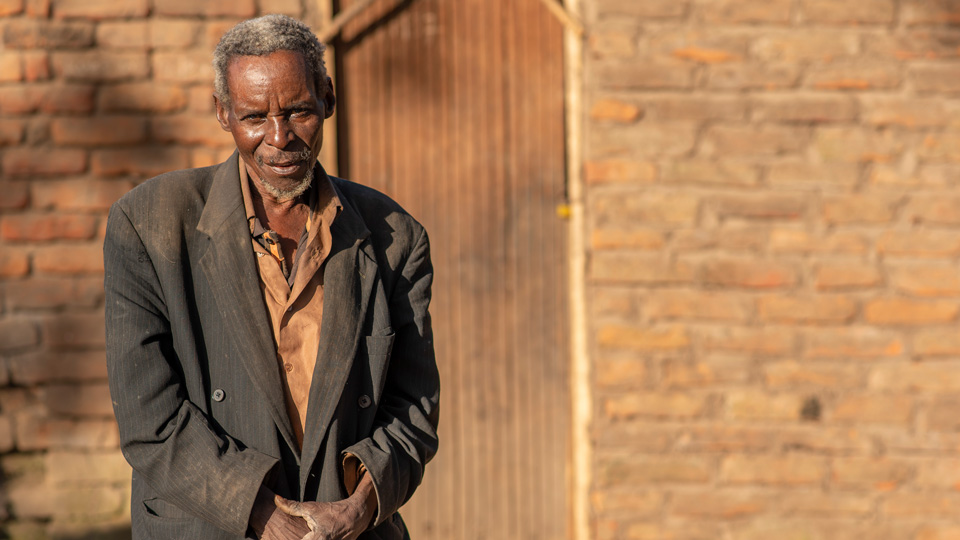
The international organisation, Sightsavers, has launched a campaign calling for eye health to be made a global priority.
The Eye Health Equals campaign calls on governments, organisations, donors and communities to make “ambitious but achievable changes” to recognise the importance of eye health, integrate this into global and national health programmes and invest in inclusive eye health services, with a particular focus on women and girls.”
Sumrana Yasmin, deputy technical director for eye health and URE at Sightsavers, said: “Eye health equals opportunity, allowing children to learn and adults to earn. It equals improved wellbeing: supporting families, communities and nations to thrive. And it equals progress towards our shared goals of reducing poverty and inequity.”
Sightsavers and its partners are celebrating World Sight Day with events across Africa and Asia, including a visit from Her Royal Highness The Countess of Wessex in Malawi, the first country in southern Africa to end trachoma as a public health problem.
4 Orbis launches See The Light Diwali appeal
Orbis has marked World Sight Day with its See The Light appeal, which will run until Diwali on 24 October. Orbis hopes to shed light on its work in India, and how public support will help the millions of people who are living with the impact of sight loss in the country.
The charity has highlighted the case of Vaishnavi, from Bihar, whose future is now brighter thanks to a sight-saving operation. Vaishnavi was treated for a cataract at the Children’s Eye Centre at Akhand Jyoti Eye Hospital, an Orbis partner hospital, in 2018.
Vaishnavi’s father, San, explained that he wanted her to have eye surgery so that she could receive an education. “I wanted to get her treatment as soon as possible because she’s so young and I know that when she grows older it might get difficult. I want her to grow up and study,” he said.
5 Twiggy fronts new Macular Society and Bayer awareness campaign
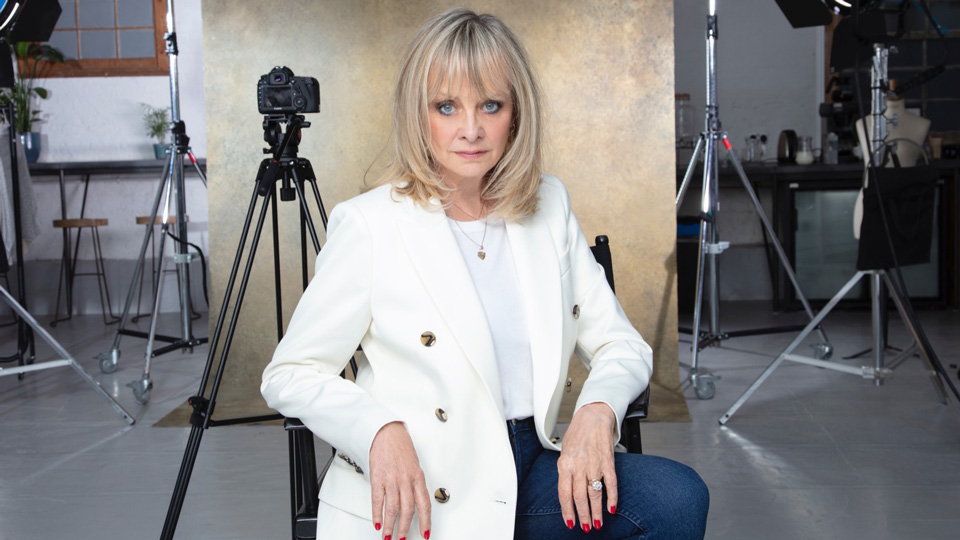
The Macular Society and eye care company, Bayer, have launched a joint public awareness campaign focused on eye health and fronted by the actress and model, Dame Twiggy Lawson.
The campaign, Don’t lose focus, launched on national television and online on World Sight Day to remind people over the age of 55 to look after their eye health. The video uses the scene of a photoshoot and a photographer’s camera to illustrate some of the early warning signs of macular disease.
Commenting on the campaign, Dame Twiggy Lawson urged: “Problems with our eyesight shouldn’t be ignored, especially as we get older.”
Cathy Yelf, chief executive of the Macular Society, highlighted the importance of detecting the condition early, adding: “We must not lose focus of the importance of our eye health and [we must] ensure we all attend regular sight tests.”
6 Boots Opticians’ research illustrates the effects of good vision on confidence
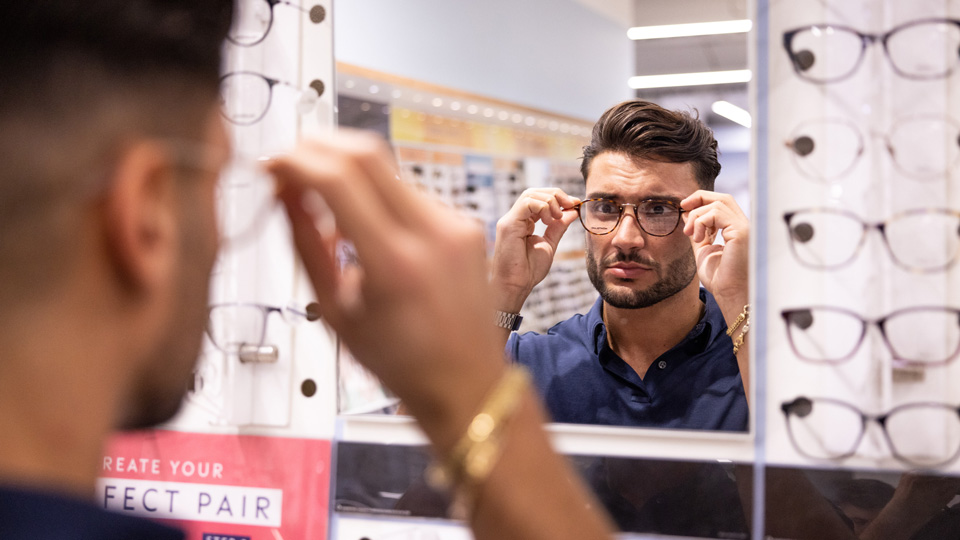
Boots Opticians revealed new research illustrating the effect that good vision can have on quality of life in a survey of 2000 UK adults who wear glasses and/or contact lenses.
The survey, commissioned by Boots Opticians, found that nearly three-quarters of respondents (74%) felt their quality of life has improved since they started wearing glasses or contact lenses. 32% said they have been able to try a new activity, with the most popular being reading new books (41%). The survey also found that before their sight was corrected by wearing glasses, 34% felt they were lacking confidence and 18% felt ‘left out.’
Boots is calling on the British public to book an appointment with their optometrist to check their eye health, and is also working with Love Island winner, Davide Sanclimenti, to inspire glasses wearers.
7 #Glasseson campaign for positive glasses-wearing emojis
The IAPB has supported 13-year-old campaigner, Lowri Moore, to launch the #GlassesOn campaign, with the aim of tackling stigma around wearing glasses.
Moore, who wrote to Disney as a nine-year-old to call for a glasses-wearing heroine, has now written to the president of the Unicode Consortium of tech companies to call for an option to add glasses to emojis.
In her letter, Moore notes that current glasses-wearing emojis include a ‘nerd face’, ‘granny’ or ‘teacher.’
“I think this is damaging as it helps reinforce the negative stereotype/stigma that we are trying hard to destroy. As I’m sure you know, people who wear glasses are not nerds,” Moore wrote. “But unless we address this, there’s a chance the next generation will grow up believing this lie about themselves.”
8 $15 million gift catalyses VisionSpring initiative
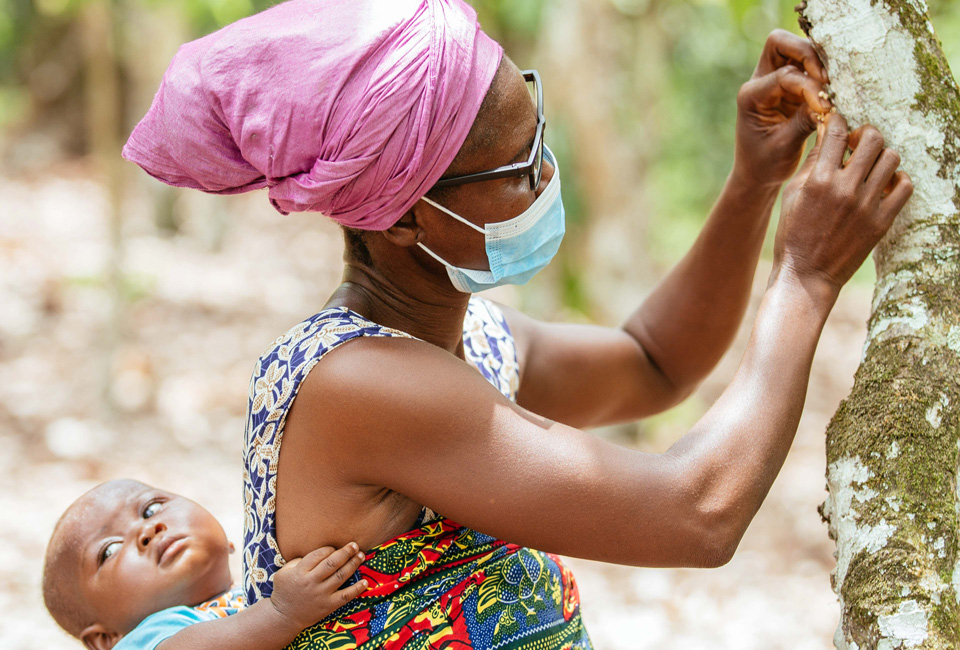
VisionSpring, a social enterprise creating access to affordable eyewear, has launched a $70 million (approx. £63 million) initiative, Livelihoods in Focus, that will focus on low-income workers amongst tea, coffee, cocoa and artisan workers in India, Bangladesh, Ghana, Kenya and Uganda.
The initiative, which aims to correct the vision of more than six million people by 2030, is also expected to improve workers’ income and wellbeing, and create more than $1 billion (approx. £900 million) in new income potential.
The project has been catalysed by a gift of $15 million (approx. £13 million) made by the American billionaire and philanthropist, Mackenzie Scott. This is believed to be the largest single private donation towards solving the problem of “uncorrected blurry vision as a poverty intervention,” the enterprise said.
Supporting communities with spectacles
A randomised controlled trial in Assam found that a pair of spectacles lifts productivity by 22-32% among workers, the enterprise noted, adding that it routinely finds that between 65% and 85% of workers acquiring glasses through its programmes have never had their sight tested before.
The organisation has targeted the tea, cocoa, coffee and artisan communities, because it has identified the need for vision correction as “acute,” and as the work in these areas is vision intensive, especially at near distances.
9 NHS Blood and Transplant highlights donor shortage
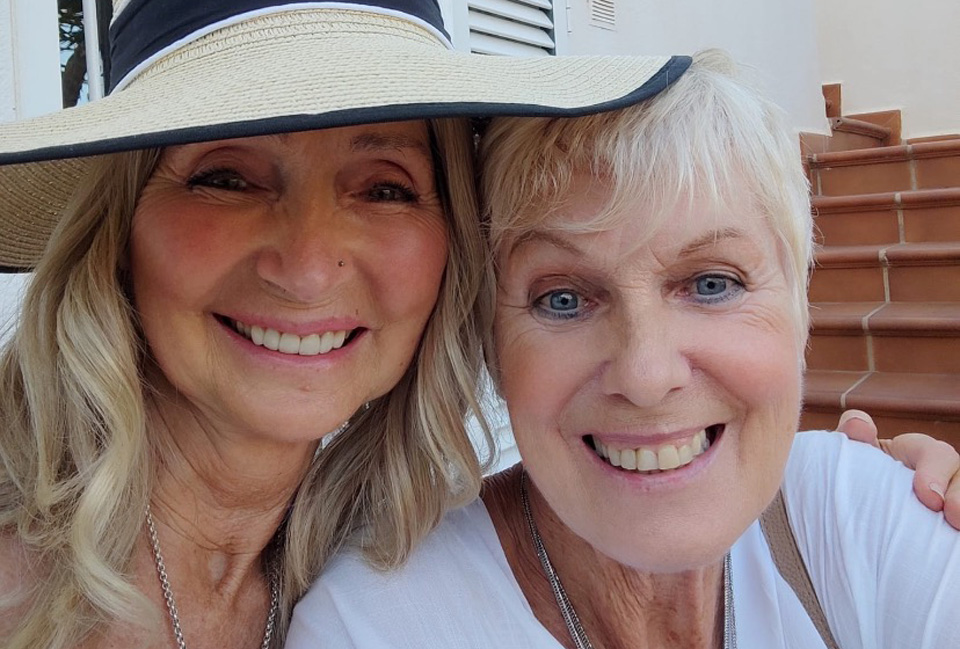
NHS Blood and Transplant is asking people to register for cornea donation “to help more people get the gift of sight.”
NHS Blood and Transplant highlighted a general shortage of donors, noting that its eye banks only have around 228 corneas in stock (as of 11 October 2022) compared to the 350 needed.
As part of World Sight Day, the health authority has shared the story of 72-year-old Rosie Harris, a hospice volunteer who has decided to donate after learning she had terminal cancer 18 months ago.
Encouraging people to think about organ and tissue donation, Harris said: “Everyone has their own fears but I find speaking helps.”
Having seen the benefit that a double cornea graft made for her sister-in-law, Harris said: “Once you explain the difference that cornea donation can make, they are more likely to consider it.”
Stand-up comedian and comedy writer, Paul Kerensa, has also shared his experience of receiving a cornea transplant following a diagnosis of keratoconus.
He advised talking about donation, adding: “I’m hugely grateful to my donor – someone I’ve never met, but who has changed my life.”
Amanda Ranson, head of operations, tissue and eye services at NHS Blood and Transplant, said: “We understand that some people feel less comfortable about cornea donation. We also know many older people don’t realise they can donate, even if they have eye sight problems or other health problems.”
10 RNIB and CBeebies team up for first Bedtime Stories read in braille
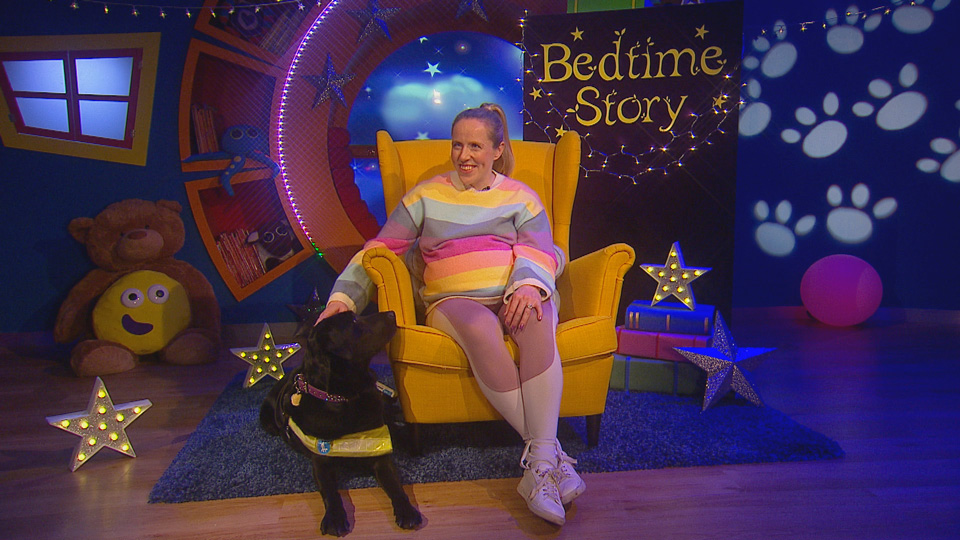
The Royal National Institute for Blind People (RNIB) and CBeebies have joined forces to broadcast the first edition of its Bedtime Stories that will be read in braille. Paralympian and double world cycling champion Lora Fachie, whom OT has previously interviewed, will read The Secret Code, a children’s book that introduces young readers to the concept of braille, after the RNIB provided a transcript. Illustrations will also be audio described.
David Clarke, chief operating officer at RNIB, said: “We want to spread the message that blind and partially sighted parents can absolutely read bedtime stories to their kids” and added that it is “fantastic to take this opportunity to highlight braille books.”
Fachie said she is “over the moon” to be taking part and hopes that “this will encourage everyone to want to read, whether they use their eyes, their ears, their fingers, or a secret code.”



Comments (0)
You must be logged in to join the discussion. Log in